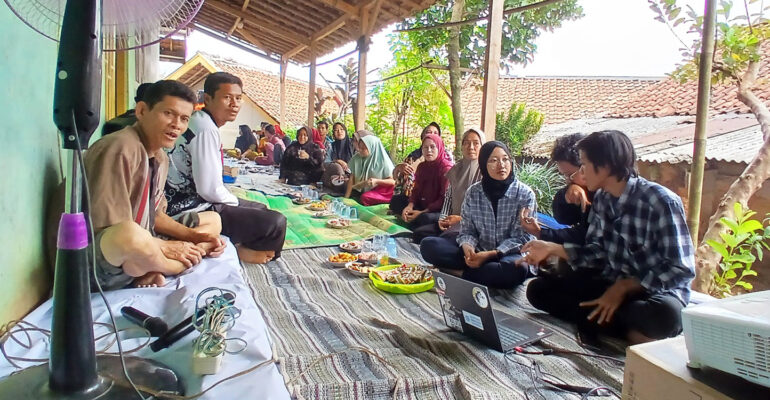IPB University Lecturers and Students Hold FGD with Mandate Farmers in Nanggung Village

IPB University lecturers and students held a Focus Group Discussion (FGD) with farmers who are members of the Nanggung Transformative Community Alliance (Amanat) who manage the Pasir Kolecer Block, the ex-Hak Guna Usaha (HGU) of PT Hevea Indonesia (PT Hevindo). The FGD took place in Dukuh Kaung Village, Nanggung Village, Nanggung District, Bogor Regency, West Java.
This activity was welcomed by the community with the presence of around 50 residents who enthusiastically participated in the discussion. M Shohibuddin, the leader of IPB University’s Dosen Pulang Kampung (Dospulkam) program in Nanggung Village, explained the results of the vegetation survey and socio-economic survey that had been conducted previously.
In his presentation, he explained that based on the vegetation survey, there were an average of 126 trees per hectare on the land. “The potential tree stand is relatively low, only about 9 m³ per hectare, indicating a very small production potential,” he said.
Meanwhile, he continued, the tree species that dominate the area are sengon and African wood with diameters between 10 and 30 cm. In addition, the dominant fruit plants are jackfruit and durian with tree diameters ranging from 10 to 20 cm. This data is an important reference in designing a more productive and sustainable land management strategy.
Based on vegetation and socio-economic surveys, the Dospulkam IPB University team recommended a number of superior commodities that could be developed in the area. For timber commodities, these include sengon, African wood, balsa wood, rasamala, and bamboo. As for fruit commodities, plants such as avocado, durian, mangosteen, mango, cimpedak, petai, lime, jengkol, and banana are recommended.
Not only that, coffee is also recommended as a plantation commodity. However, Shohibuddin emphasized that the results of this survey need to be further discussed and agreed upon by the local community on which commodities to develop.
“Dear ladies and gentlemen, you must discuss to determine the choice of commodities you want to develop. This is because this land will be managed and developed by you,” said Shohibuddin.
“Choosing the right commodity is very important in building a sustainable agroforestry system. By choosing commodities that can be developed in bulk, the community will find it easier to develop markets. Conversely, if the diversity of commodities is too high but the quantity is low, this can make it difficult to market because costs will be higher,” he said again.
With this FGD, he and his team hope that the community can make the right decision in developing the former HGU land into a productive and sustainable agroforestry area. In addition, this activity also strengthens partnerships between academics and communities in an effort to improve the welfare of rural communities. (*/Rz) (IAAS/ZQA)


